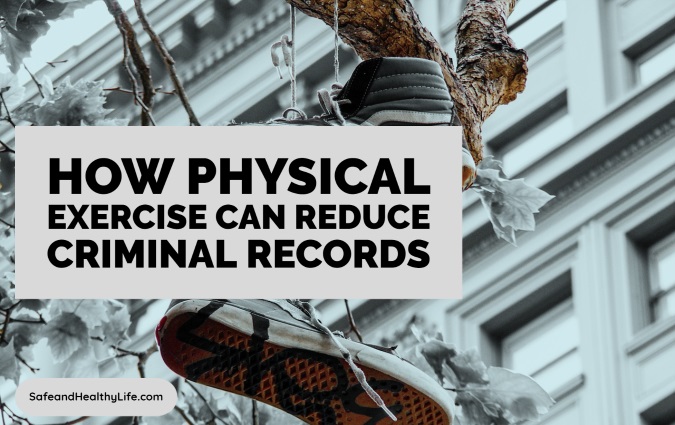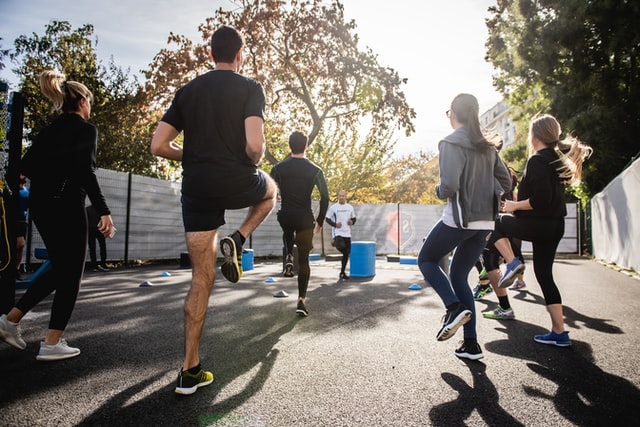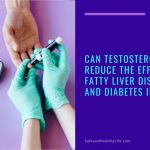
The best strategy to combat crime is prevention and this means taking care of the needs of the young generation and steering them in the right direction.
In Australia, as in any other country, criminal offences end up costing the economy millions of dollars and prison sentences are not enough of a deterrent.
A far smarter approach is investing in the young generation before they commit an offence, and one of the most successful investments in sports. Here’s how it works.
Why do young people get involved with the crime?
People are not natural born killers, to quote a famous movie. They are drawn into criminal activities because they don’t find anything better to do with their time.
According to a British survey, 70% of teenagers say antisocial behaviour is a product of pure boredom. Obviously, not all teenagers find themselves in this situation. This applies mostly to those in troubled neighborhoods, low-income areas where crime is rife.
In most cases, these teens also lack strong role models and parental supervision. With nothing to motivate them to focus on their studies and a future career, teens are liable to get involved in criminal activities and street gangs.
As they grow up, these youngsters will find themselves burdened with a criminal record and unable to find a job, since most Australian businesses these days ask for routine Australian national police character checks as part of their screening strategy.
The idea of implementing sports programs is based on numerous surveys showing that crime rates tend to drop, sometimes significantly, in areas where teenagers have an alternative to spending their free time, other than petty crimes usually associated with street gangs.
In the UK, many local councils have implemented sports programs directed at young people, mostly between the ages of 8 to 17. The so-called Street Sports programs offered children the chance to engage in football, rugby, or skateboarding competitions. The results were most encouraging.
For instance, in 2010, in the city of Aylesbury in England, the local council put in place a 10-week sports program over the summer holidays, with kids of all ages being engaged in rugby. The number of criminal offences and reports of antisocial behaviour fell 10-35% as compared to the previous year.
This is just a small-scale experiment, but all sports initiatives had similar results in various parts of the UK.
The benefits of sports activities in preventing crime

Photo Credit: Unsplash
First of all, there’s the boredom factor. Teenagers who find something interesting to do are less at risk of committing antisocial acts.
On the other hand, engaging in sports and working hard to show their skills boosts their self-confidence. They’re less likely to try to establish themselves as the local thug-in-chief once they can prove they’re good at something else.
At the same time, team sports strengthen ties to a small community, other than a street gang, and give youngsters a sense of belonging, which is essential for teenagers in search of an identity.
Being involved in a regular sport activity also gives youngsters a much-needed sense of discipline. For instance, they discover the need to sleep enough to be in a good form, they have a timetable to respect, there’s a structure to their lives.
All sports programs cost money, and sometimes local authorities are unwilling to invest funds just to keep a bunch of kids playing football. That’s short-term thinking. Long term, however, many of the kids involved in such programs will stay away from crime, they’ll finish their education.
Most of all, they will have a chance at getting a good job without having to worry about the criminal record they got when they were 17 and had nothing better to do than steal some beers from the store.
Wrapping up
Evidence has shown that Sporting activities and activities which are physical in their nature can give persons some sort of a sense of belonging, also loyalty, and thereby also support, which may end up resulting in reducing things that suicide, truancy, and illicit drug use which are then no longer viewed as an option by the individual that took up physical sports.
It has also been found that the various experiences young people get from involvement in physical activity and sports can include physical activities, things related to fitness, and skill development which is physical in nature.
Research has proven that furthermore specifically, physical activities and sports offer people important opportunities for being able to build their life skills for at-risk youth that then allow the youth to better cope with their daily life challenges and issues, and move away from involvement in things like violence, drug abuse or criminal activity.
About The Author:
Jessica Lee is a fitness specialist based in Victoria, Australia. She runs a gym in Victoria and enjoys blogging about sports and fitness trends in Australia’s fitness industry.




